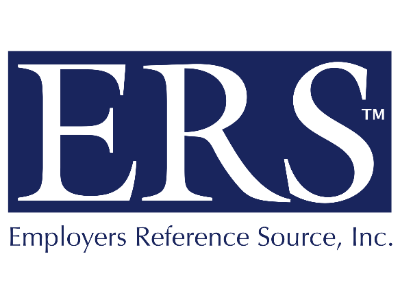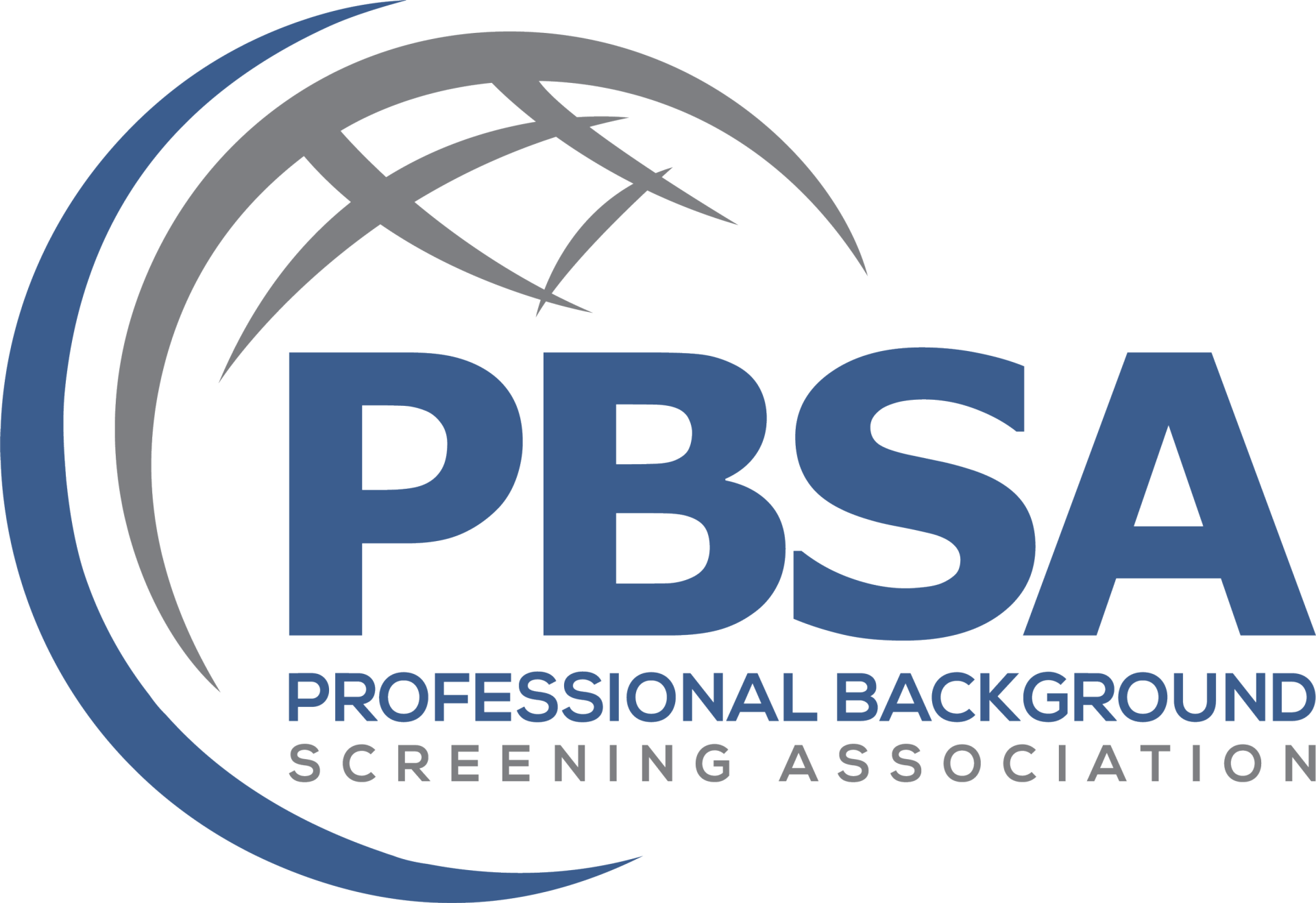FAQs
- How long does a background check take?
Each background check requested is typically returned within 24-72 hours. The processing time depends upon the state or states that the applicant has resided in and the types of searches requested. Some states offer resources that produce same-day results while others take additional time to search for records and return their findings.
Another factor to take into consideration is the verification of employment and/or education. ERS may have difficulty establishing contact with former employers or educational institutions, which can lengthen turnaround time. In addition, after making contact with employers and institutions, more time may be needed for them to research their records or have the appropriate person call us back. In these cases, ERS often produces a report with the initial findings and then provides a supplemental report when the employment or education verification is complete.
International background searches might require additional information which can also delay the process. International criminal searches and employment/education verification will typically require more time to receive a response.
- Besides the ERS quoted rates, are there any additional fees when running a background check?
There are some court access fees in some counties, states, and all with MVRs (Motor Vehicle Registrations). Contact our office for a full updated list of these fees.
- How are background checks conducted?
Under the FCRA guidelines, Consumer Reporting Agency’s (CRAs) can only conduct research on a person and provide a consumer report if there is a “permissible purpose”, including employment screening. CRAs use a variety of sources, including a national network of local court researchers, state and local databases, interviews, and other sources depending on the requirements of the job. They use name, address, date of birth, social security number, and other demographic identifiers to help verify that the information obtained is correct and applicable to the subject of the search. The majority of criminal records do not contain social security numbers. Most criminal records are searched by name, date of birth and demographic identifiers.
- How many years do criminal records go back?
Each state, county and city is different. Some courthouses choose to only maintain seven years of records, some hold on to cases for ten years, and others have no time limit to age of their records. Arrest records are often maintained the same way. Unfortunately, there is no set rule, but seven to ten years is most common.
- How far back does ERS report criminal record information?
ERS follows Fair Credit Reporting Act (FCRA) guidelines plus any applicable state and local guidelines in determining the length of time for reportability of criminal record information. Some states and municipalities have reporting guidelines, which are more restrictive than the standard provided in the FCRA and may have even greater reporting limitations due to anticipated wages or for certain minor crimes. Additionally, state and local guidelines may also limit the types of adjudication information that are reportable, such as limiting reporting to convictions only. Generally, it is the laws governing the applicant’s current residence and the employer’s location which are applicable in determining which guidelines to apply.
Employers should check with their legal counsel or our compliance department for questions about reportability guidelines in a specific jurisdiction.
- Do pending charges show up on pre-employment background screenings?
In many cases, pending charges will be reported on employment background checks. The agency that conducts the background check, the location of the crime, the nature of the charges, the applicant’s current address, and the location of the employer can all affect what information appears on the report.
- Do DUIs show up on the driving records?
Yes, but only If the applicant was convicted of driving under the influence in the same state that their current driver’s license is issued. To conduct a general search for a DUI, it is best to run a criminal record search in all jurisdictions where the applicant has resided.
- What are the employer obligations under the FCRA (Fair Credit Reporting Act)?
ERS is bound by the regulations as required by FCRA , federal, state, and local directives, just as an employer is also subject to laws and requirements under these same directives. Employers must obtain a consent, provide adverse action, and more.
- Does an applicant need to provide consent before a background check is run on them?
Yes. Employers must obtain written permission from a candidate or employee before running a background check. This is in compliance with the Fair Credit Reporting Act (FCRA).
Employers should have a clear and consistent background screening policy and process in place to certify that employees and candidates have been notified of the background screening process. This will also ensure that employees and candidates are informed of their legal rights when adverse action is taken based on the results of the background check; that every effort is taken to protect the candidate or employee’s privacy, and to avoid any discrimination.
In some states, laws preclude employers from getting ongoing permission to run background checks on employees. In these states, employers must obtain a candidate's or employee's consent every time they run a background check. Please check with your legal counsel to find out more about the laws in your state or municipality.
- Does an applicant have any rights concerning the background check?
Yes. The Fair Credit Reporting Act (FCRA) requires that applicants who consent to a background check be given a document that describes their rights titled “A Summary of Your Rights Under the Fair Credit Reporting Act.” This document states that an applicant has a right to know if information in the consumer report has been used against them. It explains how a person can get a free copy of their report, dispute the findings of the consumer report, and take action against agencies that violate the FCRA.
- What should an employer do if the candidate insists that the information contained in the background report is not accurate?
If the candidate is denied employment due solely to the negative background check, the candidate should be given an opportunity to dispute the information and prove that it is incorrect. The Fair Credit Reporting Act (FCRA) defines a consumer’s rights in disputing inaccurate or incomplete information.
If a consumer identifies an item on a Consumer Report that is prepared by a CRA that they believe is inaccurate, they are encouraged to contact the agency who prepared the report to dispute the report findings. If the consumer report was prepared by ERS, you should contact ERS’s compliance department either by phone, email, or mail. Within 5 days of receipt of a dispute claim, ERS will begin re-investigation process. Depending upon the type of information in dispute, the re-investigation will involve directly contacting the court of record, employer, educational institution, etc. to further investigate the initial findings as well as gathering additional documentation as available and necessary to remedy the dispute. Re-investigations are generally completed within 30 days or less. Results are provided to the consumer, and if there are any necessary changes to the report, the employer is provided with an updated report.
- What steps does an employer need to take if they decide not hire someone based on the results of a background check?
Employers are legally obligated to follow a series of steps if they make the decision not to hire based on the results of an employment background screening report. These steps are known as the “pre-adverse and adverse action process” and include the following actions:
- The first step is “pre-adverse action”. Prior to taking any adverse action, the employer must provide the applicant with notice indicating that the report is being utilized for the decision-making process, a copy of their consumer report, and a copy of the Summary of Rights under the FCRA.
- The employer must wait a reasonable period of time to allow the applicant time to dispute the accuracy of the consumer report before taking adverse action. Industry standard wait time is 5 business days.
- The employer can now take “adverse action” and must provide the following to the applicant: notice of the adverse action (i.e. denial of employment or of promotion), the contact information of the consumer reporting agency that prepared the report, a copy of their consumer report, and a copy of the Summary of Rights under the FCRA.
ERS has prepared documents to assist in this process. They can be downloaded directly from the ERS client portal or contact our office to speak with a representative for additional assistance.
Contact Us Today
For more information or to schedule a consultation, call us at (888) 512-2525 or click the button below.
Why Choose Employers Reference Source?
Providing Background Checks Since 1990
No Minimums
Required
Results Within 24-48 Hours
Same-Day Turnaround Available
Get In Touch With Us
For more information or to schedule a consultation, call us at (888) 512-2525 or fill out the form below.
Contact Us
We will get back to you as soon as possible.
Please try again later.

